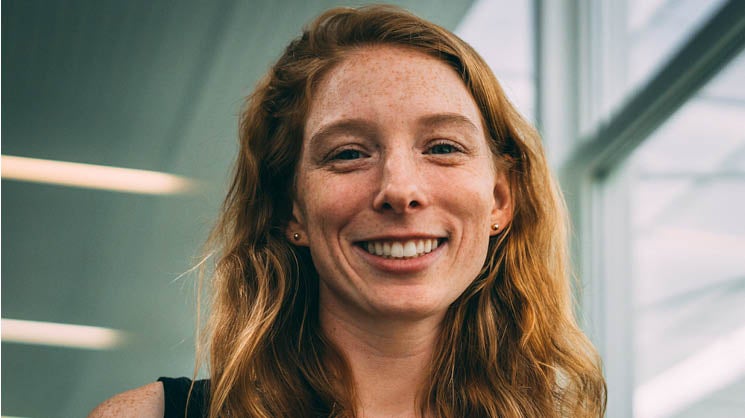Congratulations to graduate student Marion Donald on winning a prestigious NSF Postdoctoral Fellowship! The three-year program will see Donald off to New Zealand, where she will study honeybees and their impact on pollination networks.
A component of the NSF program is that award winners take already existing data, such as that from museum collections, and use it in a new way that wasn’t previously envisioned when it was collected. Donald will utilize a museum insect collection from a study conducted in the ‘70s. Using pollen that should still be on these insects, she will use it to build an understanding of what plants they were pollinating, and will then resurvey to determine where the pollination networks are changing.
“Honeybees were introduced to New Zealand by Europeans and are now abundant due to the Manuka honey industry. There has been huge pressure to put honey bees on land but without much thought into how this will affect native pollinators.”
Donald first thought about grad school while taking André Droxler’s Oceans, Atmospheres and Climate course as a Rice freshman.
“I didn’t really know what a Ph.D. entailed or why people go to grad school,” Donald said. “I didn’t know you get paid to earn a degree; I knew nothing about it. But I was excited and interested in the topics in that course, and when I talked to Dr. Droxler, he encouraged me to consider grad school.”
Early in her undergraduate career, Donald worked in Tom Miller’s lab and ended up applying to the Ecology and Evolutionary Biology (EEB) graduate program to work under his advisement.
“It was luck that I joined Tom’s lab as a sophomore,” she said. “I learned the ropes, did a senior thesis, and worked as a lab tech for a year before applying to different graduate schools. I had every intention of leaving, but Rice was just so awesome I decided to stay.”
“Ecology is the coolest thing ever,” she said. “You work to understand the interactions between all living things and their environment and how they change through time. That’s what drew me to EEB.”
Beyond her postdoctoral work, Donald is still deciding what she’d like to do next - and that may include policy work.
“I’ll be working with a collaborator at the New Zealand Department of Conservation during this fellowship,” she said. “I’m learning how academic research can be applied to making policy changes. If we find that honey bees are going to be detrimental to the native system in New Zealand, what policy changes should be made?”
Her advice to undergraduates interested in research is to get involved early and reach out to faculty.
“Asking to join a project can open up a lot of doors,” she said. “If you have a strong work ethic, are curious, willing to ask questions and have the resilience to push through when things go awry - this combination will set you up for success in research.”

